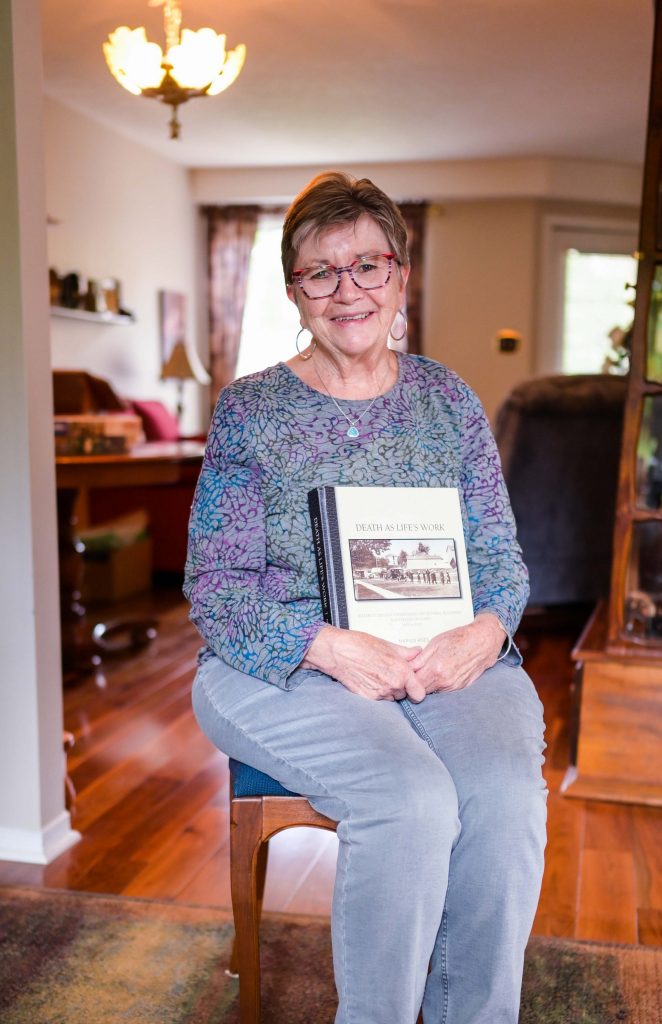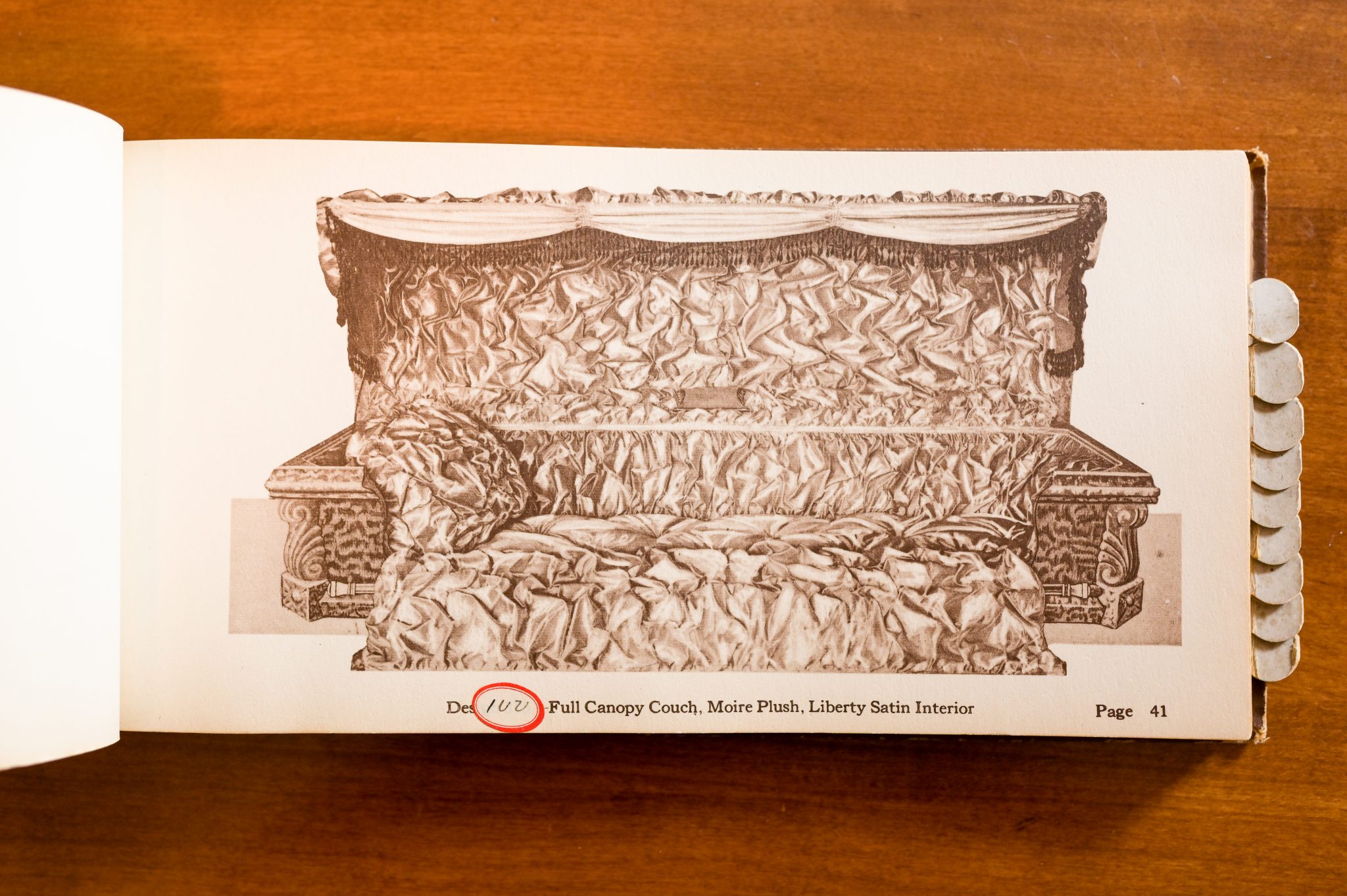There is a gap in our local history where the undertakers should be—one that Marion Roes was intent on filling. Roes comes from a family of funeral directors and undertakers going back to the early 20th century with the founding of Dreisinger Funeral Home. She saw that her history and the history of others like her, was not reflected in the region and so she created a collection for people in businesses related to death.
Roes collected histories from the region pertaining to funeral directors and undertakers and compiled into her book, Death as Life’s Work. The Waterloo Region Heritage Foundation (WRHF) provided a grant that allowed Roes to spend more time and effort on collecting resources from the community.
The purpose of the book changed throughout the research, writing and editing processes.
“I suppose easier so my hope was that it would be used as a research tool for family history, genealogy, funeral history, social history,” Roes said.

The physical book is a warm beige with a darker black spine. Roes said that part of its purpose is as a coffee table book—since it is not a textbook, readers can pick it up and read some parts or just look at the pictures.
Rather than a textbook or a cohesive story, the book is a compilation of various histories, artifacts and information.
It includes a variety of sources from interviews with people currently working in the business to the records of different people experiencing death to the development of different techniques and tools.
“I didn’t get into [the traditions surrounding death] because I wasn’t interested,” Roes said. “…I was interested in the histories because the histories hadn’t been written. It was hard to find information about the funeral homes, or businesses other than a few things in the newspapers.”



Historically, people who work as a funeral director or undertaker also have other jobs. These other positions typically focus on directories and other records. Unless the person otherwise holds another prominent position any record of their work in death was not well-maintained.
Roes grew up with the funeral business in the family. Even after the business was sold, her sister and other relatives continued working as funeral directors and undertakers. Death as Life’s Work is also an opportunity for her to share her own experiences and stories.
Own experiences, family experiences and business, had a lot of pictures
“I have my own experiences to talk about. family experiences my own family my family’s business,” she said. “And I guess I’m just drawn to a lot of pictures because I had a lot, and I had a lot of records.”


Roes has lived in the region all her life. While some families lived above their funeral homes, Roes’ family did not. They ran the funeral home and furniture store as a separate business. And she spent a lot of time in the furniture store, eventually working there.
“I was comfortable in a place where there were caskets, where there were dead bodies. And that’s where I’ve been some information about some of the Mennonite traditions,” she said.
Roes had and created many connections in the community in the process of creating this book. During her time working in funeral homes, she created relationships but also gained familiarity with the big names in the region’s funeral and death industries.
In some cases, Roes was unusually lucky for a researcher. For example, she was able to trace a motor hearse from its conception to the present day. She followed Becker’s 1929 Superior-Studebaker Arlington Funeral Coach from New Hamburg to North Carolina, where the Hearse now stands.
“I mean, I was lucky and I probably wouldn’t been able to do it. I mean, I had the interest. I have the interest and have some of the material and the contacts,” she said. “And then I just had to work my butt off for eight years…from the time I decided to do the book.”
Roes found that while many of the people involved in funeral businesses were continuing a family business, others did so because they had experiences of loss and finding support earlier in their lives. She found that they then went on to enter the field so they could help other grieving families.
“[My sister] wanted to be like her mom and her uncle who were looking after people,” she said. “But also from these interviews, I discovered which I hadn’t realized before—that they wanted to go into the business to be a funeral director to help people to help families whose loved one and died because they had the experience of [loss when they were younger].”
The book is available in bookstores and museum gift shops around the region, as well as in local libraries and archives.




Leave a Reply